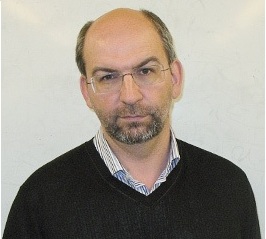The Infinity Computer and numerical computations with infinities and infinitesimals
The lecture introduces a new methodology allowing one to execute numerical computations with finite, infinite, and infinitesimal numbers on a new type of a computer – the Infinity Computer. The new approach is based on the principle ‘The whole is greater than the part’ (Euclid’s Common Notion 5) that is applied to all numbers (finite, infinite, and infinitesimal) and to all sets and processes (finite and infinite). It is shown that it becomes possible to write down finite, infinite, and infinitesimal numbers by a finite number of symbols as particular cases of a unique framework different from that of the non-standard analysis. The new computational methodology evolves ideas of Cantor and Levi-Civita in a more applied way and, among other things, introduces new infinite integers that possess both cardinal and ordinal properties as usual finite numbers.
It is emphasized that the philosophical triad – researcher, object of investigation, and tools used to observe the object – existing in such natural sciences as Physics and Chemistry, exists in Mathematics, too. In natural sciences, the instrument used to observe the object influences the results of observations. The same happens in Mathematics where numeral systems used to express numbers are among the instruments of observations used by mathematicians. The usage of powerful numeral systems gives the possibility to obtain more precise results in Mathematics, in the same way as the usage of a good microscope gives the possibility to obtain more precise results in Physics. A new numeral system allowing one to express easily infinities and infinitesimals offers exciting capabilities for describing mathematical objects, mathematical modeling, and practical computations. The concept of the accuracy of numeral systems is introduced. The accuracy of the new numeral system is compared with traditional numeral systems used to work with infinity.
The new computational methodology gives the possibility to execute computations of a new type and simplifies fields of Mathematics where the usage of the infinity and/or infinitesimals is necessary (e.g., divergent series, limits, derivatives, integrals, measure theory, probability theory, optimization, fractals, etc.). Numerous examples and applications are given. In particular, a number of results related to the First Hilbert Problem and Turing machines are established.
The main attention in the lecture is dedicated to the explanation of how practical numerical computations with infinities and infinitesimals can be executed (e.g., for applications in optimization, numerical differentiation, and ODEs). The Infinity Calculator using the Infinity Computer technology is presented during the talk. Numerous research articles of several authors and a lot of an additional information can be downloaded from the page http://www.theinfinitycomputer.com
A full abstract of the presentation may be found here.
Yaroslav D. Sergeyev is Distinguished Professor at the University of Calabria, Italy (professorship awarded by the Italian Government) and Head of Numerical Calculus Laboratory at the same university. He is also Professor (part-time contract) at N.I. Lobachevski Nizhniy Novgorod State University, Russia, Affiliated Researcher at the Institute of High Performance Computing and Networking of the Italian National Research Council, and Affiliated Faculty at the Center for Applied Optimization, University of Florida, Gainesville, USA.
He has got his Ph.D. from N.I. Lobachevski Nizhniy Novgorod State University and his D.Sc. degree from M.V. Lomonosov State University, Moscow (this degree is Habilitation for the Full Professorship in Russian universities). In 2013, he has been awarded Degree of Honorary Doctor from V.M. Glushkov Institute of Cybernetics of The National Academy of Sciences of Ukraine, Kiev.
His research interests include numerical analysis, global optimization, infinity computing and calculus, philosophy of computations, set theory, number theory, fractals, parallel computing, and interval analysis. Prof. Sergeyev has been awarded several national and international research prizes (Pythagoras International Prize in Mathematics, Italy, 2010; Outstanding Achievement Award from the 2010 World Congress in Computer Science, Computer Engineering, and Applied Computing, USA; Lagrange Lecture, Turin University, Italy, 2010; MAIK Prize for the best scientific monograph published in Russian, Moscow, 2008, etc.).
His list of publications contains more than 200 items (among them 5 books). He is a member of editorial boards of 5 international journals and co-editor of 6 special issues. He has given more than 40 plenary and keynote lectures at prestigious international congresses. He was Chairman of two international conferences and a member of Scientific Committees of more than 50 international congresses. He is Coordinator of numerous national and international research and educational projects. Software developed under his supervision is used in more than 40 countries of the world. Numerous magazines, newspapers, TV and radio channels have dedicated a lot of space to his research.
For more information see his web page http://wwwinfo.deis.unical.it/~yaro

